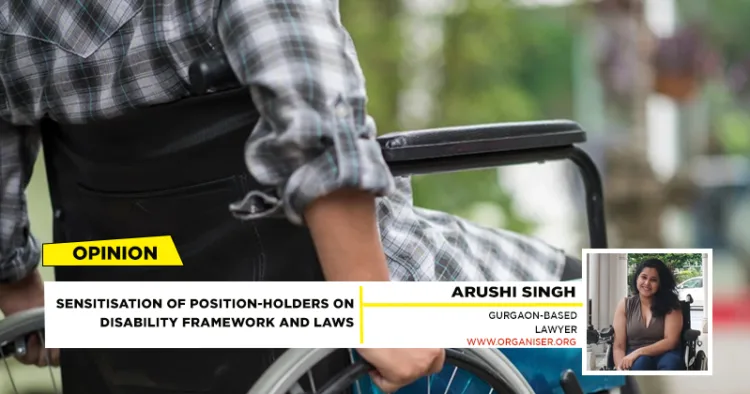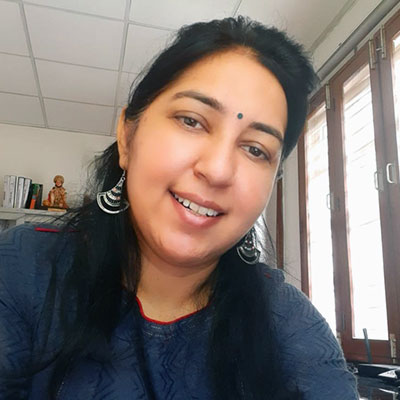The controversy ignited by IAS trainee Puja Khedkar has raised questions about the reservation of People with Disabilities (PwDs) in the Civil Services. Conversations involved high-level policymakers not only discussing reservations but also questioning the capability of PwDs to serve in these positions. The debate has highlighted concerns about affirmative action, representation, diversity, inclusion, awareness of disability models and legislation, and the need to sensitize authorities on these issues.
The Constitution guarantees equality of opportunity in all spheres of employment to any office under the State by way of Article 16. The Rights of Persons with Disability Act, 2016 (RPwD) has modelled Section 21 after this provision stating that every establishment shall notify an equal opportunity policy. The equal opportunity policy encompasses the need for reasonable accommodation and barrier free environment at workplaces which has been rightly mentioned in Section 20 of the RPwD. The requirement of an equal opportunity policy stems from the principles of diversity and inclusion that call for the infusion of PwDs in the world of work. In this scheme of things, integration of PwDs into the mainstream becomes imperative not just for the purposes of representation but to also bring in changes into the policy based on their lived experiences.
It is important to recognize that disability must be understood through the multiple intersections experienced by PwDs. While disability is a central aspect for many, PwDs often face additional marginalization due to their identities, such as being women, dalits, economically disadvantaged, and so forth. Therefore, reservation policies are essential to highlight the challenges faced by PwDs and to ensure they have a level playing field alongside other members of society. By doing so, reservation policies not only promote inclusivity but also recognize the diverse needs and contributions of PwDs within the broader framework of societal progress.
As PwDs persist in overcoming physical, institutional, and attitudinal obstacles in their daily lives, policymakers must seek ways to facilitate their integration into the workforce. Exclusionary remarks originating from policy-making circles reflect societal biases against PwDs and contribute to their perpetuation. Training and Sensitisation of officers and ministers becomes crucial to not just understand the legal framework but also to foster diversities in disability. In an earlier article, I had argued that it is not recognised enough that there is diversity in disability as well. It is indisputable that disability contains within its realm physical, mental, chronic and invisible disabilities, each with its own strengths and uniqueness. Thus, to fit disability in a ‘one size fits all’ approach is not just detrimental but deeply disturbing in the discourse of advancement of disability rights. The Supreme Court has time and again supported the acknowledgment of differences and acceptance of PwDs as part of diversity, thus advocating for their dignity and empowerment.
The debate on reservations for PwDs in Civil Services witnessed the general public and senior officers focusing on disability from a narrow medical perspective. This myopic view of disability prioritizes a person’s physical impairments over societal barriers. While this perspective on disability has prevailed for years, it has predominantly served to further ostracise PwDs and promote welfare laws that treat PwDs as recipients of charity rather than as equal participants in society. A shift in this viewpoint is critical to build progressive policies and laws to address the issues faced by PwDs. A human rights approach, coupled with a social perspective that honors the dignity, diversity, and individuality of people with disabilities (PwDs) and promotes a barrier-free society, is essential for developing the discussions on disability rights.
Similar to everyone else, people with disabilities (PwDs) lead multifaceted lives, and their personal experiences can inform reforms in legal and regulatory frameworks. Facilitating their engagement and active participation in public life is crucial for advancing these efforts. Within this context, making presumptions and reaching conclusions, particularly from individuals who have the potential to drive positive change, can significantly disrupt the lives and aspirations of millions within the disability community in the country. The ensuing dialogue has shifted from the issues afflicting PwDs to penalising an entire community for the acts of a few. There is a pressing need to educate and sensitize officers in positions of authority about the current laws and policy framework. This will enable them to profess empathy and actively promote diversity and inclusion for people with disabilities (PwDs).
(The author is a lawyer and a person with disability (PwD) based in Gurgaon)


















Comments